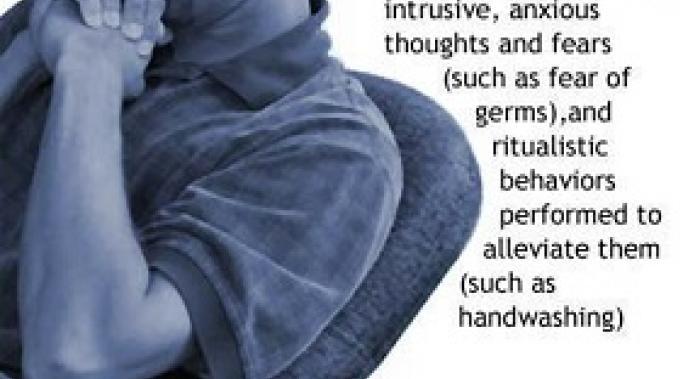Blogs
This week is a week of celebration for many. But sometimes, when you have bipolar disorder, particularly if you’re not doing well, it can seem like there’s nothing about life to celebrate. Well, I beg to disagree. Even though you might be in the midst of a major depression or a mania, there are still things to celebrate – even if you have bipolar disorder.
What’s a free pass, you say? A free pass is something that allows children to enjoy the holidays without worrying about being punished for negative behavior. Some of the parents I’ve met as a professional feel that it’s okay to take away holiday gifts from kids as punishment for negative behavior. These are parents that tend to take away or punish kids for every little negative thing they do and keep a record of negative behaviors. The truth is kids want to behave well and want to please their parents. The holiday treats can motivate kids to give positive behavior. If you want to have a great holiday season, try these three tips.
Let's face it: physical illness and mental illness don't mix. Dealing with mental illness symptoms of exhaustion, tension in the body, headaches (and the list goes on and on) is difficult. Mix in the flu or virus and between the two, it can feel as though you are boxing shadows. I recently experienced this and while I feel a bit better, there are observations that I made that I hope will help others.
Writing this Adult ADHD blog every week for nearly a year has made me slightly cuckoo about my ADHD. In order to write 350+ words every week, I need to be super introspective and think about my disorder regularly and with regards to nearly every aspect of my life. This week, I'm going to talk about the holidays, because that's what's on my mind. How to survive the holidays with Adult ADHD.
I'm sure you've heard these statements:
He's so OCD.
Quit being so OCD.
This is just my OCD coming out.
The term OCD has become common in our society. Stigma turned OCD into an adjective that we frequently use to describe someone who likes things a certain way. However, OCD, short for obsessive-compulsive disorder, is much more than a compulsion for neatness.
A dismal day, especially around the holidays, can be a sure trigger for depression. Here in southern Ontario (Canada), where I live, we are having an ice storm. It's been freezing rain and ice pellets for over 24 hours and boy... is it ever dismal. But, even though winter can be so depressing, I've decided that I'm not going to let this cold, wet, treacherous weather trigger my depression or dampen my holiday spirit.
Personal fulfillment is profound and persistent satisfaction with yourself and your situation. It is feeling exceedingly pleased about your desires and needs being realized. I get it! Fulfillment sounds like a super idea. For some of you, it may seem unimaginable. The challenge for many of us is: understanding it, finding it, and moving boldly on the path towards it.
Take a minute to put down the ‘Last Minute Shopping List’ and close your eyes. Try to push away the crazed voices of those around you who are probably just as busy and annoyed as you are during this time of year. Picture a moment from your past – a positive moment. Maybe this moment has a warm fireplace or a big tree or holiday music. Maybe you’re picturing a snowball fight or a night snuggled up with friends drinking hot chocolate.
Feeling a little bit more relaxed? You allowed yourself to escape the stressors and believe in the good of this time of year.
Have you heard this one already?
Three clinically depressed highjumpers walk into a bar. They lower it.
I’m kidding of course.
Then again, I’m not kidding, (as always), because if there is anything that will help today’s mentally ill individual survive the three-ring-circus of psychological torment and emotional Armageddon known by that deceptively sweet euphemism – the holidays – it is lowered expectations.
Why? With every layer of tinsel, every rehashed Christmas chestnut mangled by Beyoncé, every eggnog-infused martini, every promise of no money down and no payments for the first seventeen months, every drug-addled midnight greeter at Walmart scratching his most recent tattoo, every ill-considered fax at every office party, and every other cliché of Christmas cacophony and tintinnabulation comes the rising tide of truly ho-ho-horrible inevitability – the hopes, the joys, the fears of all the years, reindeer and pain dear – that Grinch-ish thief of all that is merry; expectations.
A reader recently asked me a very important question. Speaking of her therapist, she asks "How do I know that what he is doing therapeutically is the correct thing?" This is a surprisingly complex question. I will point out the major issues to address in coming up with an answer, then describe my own preferred way of dealing with this question.
However, there are two aspects to consider here - your therapist's viewpoint, and yours. It is quite possible for your therapist to do the "correct" thing, but not to get the results you want. Because each of these considerations deserve careful thought, I will address my reader's question in two posts. This first one will consider how to think about your therapist. We must begin by asking: What determines "correct" for your therapist?








